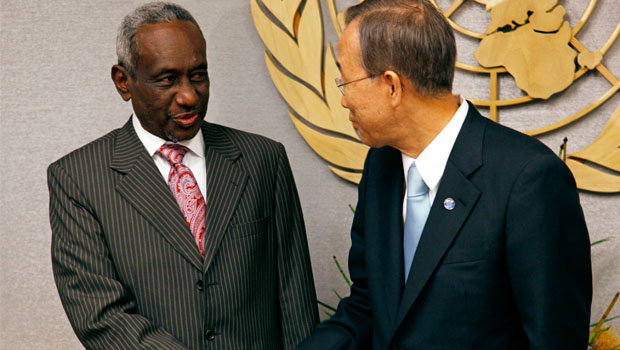Southerners are less than 100 days away from the scheduled start of a vote on whether to stay in Sudan or secede, a plebiscite promised in a 2005 peace deal that ended decades of civil war with the north.
People from the oil-producing region, embittered by the war and perceived exploitation by the north, are widely expected to choose independence in the referendum, due on Jan. 9, 2011.
Activists have said there are now growing fears about what an independence vote would mean for an estimated 1.5 million southerners living around Khartoum and other northern towns, many of them long-term residents of ramshackle refugee camps.
Information Minister Kamal Mohamed Obeid, from the north's dominant National Congress Party, stoked those concerns by telling state media that southerners would be counted as "citizens of another state" if the vote went for independence.
"If the result of the referendum was separation, then the southerners will not enjoy citizenship rights in the north as they would be considered citizens of another state", he was quoted as saying on the state Suna news agency late Friday.
Human Rights Watch this week said minorities feared a secession decision would lead to harassment and expulsions. The rights groups urged northern and southern leaders to promise not to expel each other's citizens after the vote.
The Suna report did not go into further details about whether a secession vote would affect specific citizenship rights, including property, employment and habitation.
It also did not say who would count as a southerner. People originating from the south, and other peripheries, have been coming to Khartoum for decades to find work and escape poverty, droughts and conflict. Many younger people of southern descent have lived in the north all their lives.
The minister did not respond to calls on Saturday, a public holiday in Sudan.
Northern and southern leaders on Friday vowed to work for peace and hold the referendum on time at a meeting with US President Barack Obama and other global powers during the UN General Assembly.
There are growing concerns Sudan is running out of time to organize the vote. Analysts have warned any delay to the vote, and a separate referendum on the future of the central oil area of Abyei, could reignite conflict.
Northern and southern leaders have been holding meetings on a series of "post-referendum" issues - including the division of oil revenues after the vote and how it will affect the citizenship of southerners in the north and vice versa. They have so far not announced any details of an agreement.
South Sudan President Salva Kiir this week promised northerners would be welcome in the south after the vote.
Kiir's Sudan People's Liberation Movement (SPLM) has accused the NCP of trying to undermine the vote to keep control of the south's oil. The NCP has dismissed the accusations but said it will campaign to persuade southerners to choose unity.





